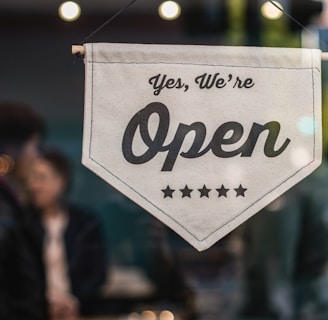Claiming expenses as a small business in the UK
As a small business owner in the UK, keeping your finances in check is crucial for maintaining profitability and complying with tax regulations. One of the most effective ways to manage your finances is by claiming expenses. By accurately claiming business expenses, you can reduce your taxable profit and potentially save a significant amount of money. In this guide, we’ll walk you through the essentials of claiming expenses for your small business and how to streamline the process.
8/20/20243 min read


1. Understanding what constitutes a business expense
In the UK, business expenses are costs that are wholly and exclusively incurred for the purpose of running your business. The key is that these expenses must be necessary for your business operations. Common examples include:
Office supplies: Pens, paper, and other stationery.
Utilities: Electricity, water, and gas used in your office.
Travel expenses: Costs for business trips, including fuel, parking, and public transport.
Meals and entertainment: Costs for client meetings or business events, though these are subject to specific rules.
Salaries and wages: Payments to employees and contractors.
Rent: Costs for office or workspace rental.
Professional services: Fees for accountants, legal advice, and other professional services.
2. Keeping accurate records
Maintaining accurate records is essential for claiming expenses. This not only helps in ensuring that you claim all eligible expenses but also provides evidence in case of an HMRC audit. Here’s how to keep your records in order:
Receipts and invoices: Keep all receipts and invoices related to business expenses. Digital copies are acceptable if they are legible and complete.
Bank statements: Ensure that your business bank statements reflect all transactions. These can serve as supplementary evidence for your claims.
Expense records: Use accounting software or spreadsheets to track expenses. Record the date, amount, and purpose of each expense.
3. Understanding allowable expenses
Not all expenses are allowable. Here are some common disallowed expenses you should be aware of:
Personal expenses: Costs that are not related to business activities, such as personal travel or personal meals.
Capital expenditures: Large purchases that are capital in nature, such as buying equipment, which should be claimed through capital allowances instead.
Fines and penalties: Any fines or penalties for breaking the law are not allowable.
4. Claiming expenses on your tax return
When it’s time to file your self-assessment, you’ll need to include your business expenses to calculate your taxable profit accurately. Here’s how to do it:
Compile your records: Gather all your expense records, including receipts and invoices.
Categorise expenses: Sort your expenses into categories that match the ones HMRC requires. This will make it easier to complete your tax return.
Enter expenses on your tax return: On your self-assessment form, input your expenses under the appropriate categories. Ensure that all figures are accurate and supported by your records.
5. Using accounting software
Investing in accounting software can simplify the process of tracking and claiming expenses. Many software options allow you to:
Automate expense tracking: Link your bank accounts to automatically import and categorize transactions.
Generate reports: Produce detailed reports that summarize your expenses and assist with tax return preparation.
Store digital receipts: Capture and store receipts using your smartphone, reducing paper clutter.
6. Maximising your expense C=claims
To maximise your expense claims, consider the following strategies:
Regular reviews: Regularly review your expenses to ensure nothing is missed and to track potential tax savings.
Stay updated on tax laws: Tax regulations can change, so keep informed about any updates that might affect your claims.
Seek professional advice: Consult with a tax advisor or accountant to ensure that you’re claiming all eligible expenses and adhering to the latest tax rules.
7. How we can help
Navigating the complexities of expense claims and self-assessment can be challenging. To make the process easier, we offer a simple solution. For just £9.99, you can fill out our straightforward questionnaire and receive a personalised, step-by-step guide tailored to your unique tax situation. This guide will help you accurately complete your self-assessment and ensure you’re making the most of your expense claims.
Claiming expenses is a crucial part of managing your small business finances and reducing your taxable profit. By keeping accurate records, understanding what qualifies as an allowable expense, and utilizing the right tools, you can streamline the process and maximise your tax benefits. And remember, if you need a helping hand with your self-assessment, our service provides a personalised guide that makes filing your tax return straightforward and stress-free.
By staying organised and informed, you can focus more on growing your business and less on the complexities of tax management.
Simplify your self assessment today
Your self assessment made easy and affordable.
Ready to get started?
© 2024. All rights reserved.
